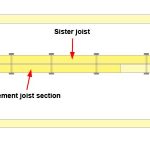In this article, we will look at whether a cabinet maker can become a carpenter. As well as whether a carpenter could do the opposite. Both of these professions fall under the same trade of carpentry and joinery. So how transferable are the skills?
As an overall trade, carpentry and joinery covers a very wide variety of different jobs. Bench joiners spend most of their time in a workshop, building things out of wood. A carpenter (sometimes known as a site joiner) spends their time fitting items on site. The items they fit, are often the things made by the joiners.

A cabinet maker is a type of joiner. They will spend most of their time in a workshop building items out of wood. It is very similar to bench joinery, and they will be using most of the same tools and machines. The main difference, is the items that they build.
Whilst a joiner will be making things like doors, windows and staircases, a cabinet maker will usually specialise in furniture. Due to this, a lot of the work they do is very intricate and detailed, which requires a high level of skill.
Cabinet makers build things like kitchens, and other pieces of fitted, and free-standing furniture. Following this, they may also fit on site, so they will often have a good bit of carpentry experience.
Due to their high level of skill, as well as their experience fitting the items they make, it is usually quite easy for a cabinet maker to become a carpenter. The skills they possess are very transferable.
Obviously, there will be a small learning curve for new jobs. However, it wouldn’t take a good cabinet maker long to be proficient at carpentry.
Can a joiner become a carpenter?
As we already mentioned, it wouldn’t be very difficult for a cabinet maker to transition into carpentry. The same would be true for a joiner, as they also have a high level of similar, transferable skills. Also, just like the cabinet maker, many joiners will often fit their own products on site.
Both joinery and cabinet making, usually requires a reasonable amount of carpentry knowledge. For small projects and individual pieces, it makes no sense to hire a separate carpenter to fit items. This means, they will often be proficient in fitting the things they make.
This is not always the case, and some joinery workshops will specialise in making items at scale. In this case, they may never fit their own product. However smaller joinery and cabinet making firms will often build and fit.
As a result, joiners, and cabinet makers, may often have experience fitting windows, doors, staircases, kitchens, fitted wardrobes, and even intricate custom pieces. These are all items that need fitting to an extremely high standard.
Can a carpenter become a cabinet maker or a joiner?
The transition from working on site, to working in a workshop will often be more difficult. A carpenter spends much of their time fitting items on site, and they usually have very little experience working in a workshop.
Whilst joiners will often do carpentry work, the opposite is rarely true. This means there is a steeper learning curve moving into a workshop environment. Whilst their will be many transferable skills, there will also be lots of different things to learn. New things they will need to learn include:
- Learning how to operate all the workshop machines
- Working with new hand tools they probably haven’t used before
- Learning different joints and techniques for joining wood
- As well as all the other things involved in running a workshop.
They are also moving from working on site, which often means constantly working in different locations. Whereas a cabinet maker or a joiner is usually a fixed working position in a workshop, which is a very different days’ work.
A carpenter can certainly make this transition. However, they should be prepared for a steeper learning curve, as it is a completely different job.
Personal anecdotes – Moving from joinery to carpentry
As an apprentice, I was very lucky to start my career working in a workshop as a joiner. This job involved building things, like windows, doors, staircases, and many other items built from wood.
I was mostly trained by one qualified joiner, who also spent a lot of time fitting items on site and in people’s homes. As a result, I gained experience of both joinery and carpentry.
After about a year and a half, a friends father asked if I would like to go work for them. This was mainly working on new build projects as a carpenter.
I personally preferred the onsite work, and he was offering slightly more money. Plus both of his sons worked for him, which meant I got to work with friends.
The job I began working on, was during the first fix carpentry phase. This meant I ended up doing a lot of new work I had never done before, such as building studwork, fitting trussed roofs, etc. I found these jobs very interesting, and the transition felt very easy.
Therefore, I have to assume a more experienced joiner or cabinet maker, would have no problem making the same transition and becoming a carpenter.
Advice from my college teacher
Another thing I remember, is a conversation with a college teacher I had as an apprentice. He was a very skilled joiner and over his career he had done lots of bespoke joinery work.
He had a large photo album, containing work he had done, and we (the students) would often try to get out of boring lesson work, by getting him to tell us stories of the projects he had built. These included things like:
- Building a full-size working water wheel for a mill
- Making a replica window for a museum, that had 20 individual panes of glass, where every joint was mortice and tenoned by hand. Plus, he made his own glass, and nails.
- Creating plans, and building a double decker horse drawn carriage, with a spiral staircase, all from a picture on a postage stamp.
He was a true craftsman and probably one of the best trades men I have ever encountered, which I do feel very grateful for.
When I told him I was switching from joinery to carpentry. He had told me, that this was far easier than the other way round.
Over the years, he had known many joiners and cabinet makers that had moved over to carpentry. However, he knew far less that had successfully moved in the other direction.
Conclusion
Cabinet making, joinery, and carpentry are all part of the same trade. However, they are separate professions, and a person will usually specialise in one area.
With that said, there are many transferable skills, and it is possible to move from one discipline to another. As a general rule, moving from a workshop environment and becoming a carpenter, is going to be much easier than the other way around.
Most joiners and cabinet makers, will already have a reasonable amount of carpentry experience.
However, a carpenter will have a much steeper learning curve if they want to successfully move into a workshop.




